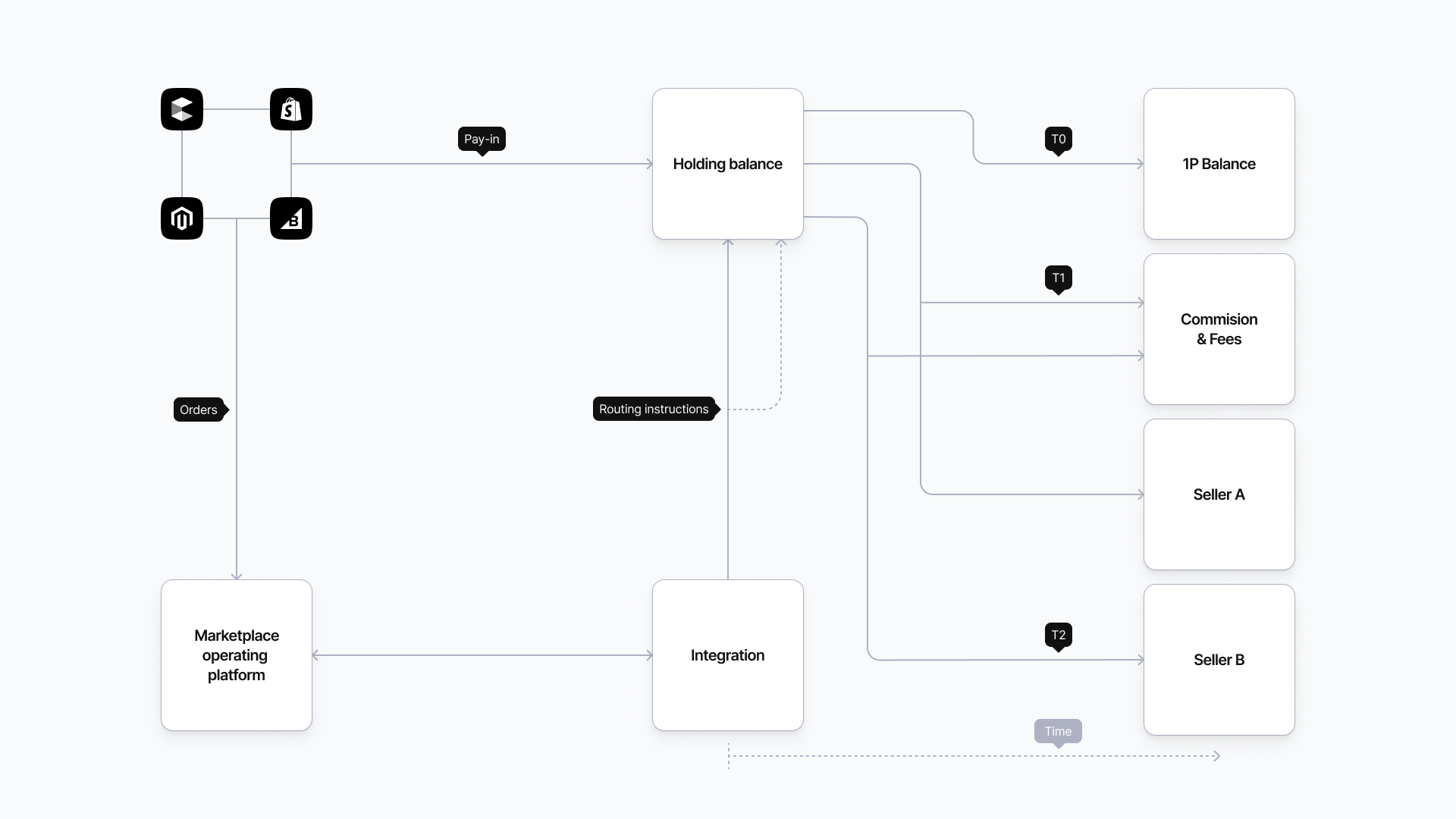Mirakl: Payouts
Within the Mollie for Mirakl Connector, you can route payments event-driven or based on the Mirakl billing cycle.
This is configured by Mollie's Team during the setup of the integration.
This feature will be added in the future iteration of the Connector. Preparation for the change of approach is already provided.
According to the model you select, funds are automatically allocated to the sellers either during or at the end of the billing cycle and the Connector routes the funds to the designated seller or operator accounts.
In case your Mollie organization has more than one EUR balance, the Connector will always route funds to the default balance.
Based on every organization's payout schedule (configured in their Mollie Web app), the funds will then be transferred to the Mollie payout bank account.
Event-driven allocation and the Decision framework
Mirakl offers a comprehensive mechanism that allows sellers to accept their logistical orders with various workflows, which determine when the funds are allocated to the seller. Options include auto-acceptance, pay on acceptance (requires seller's acknowledgement), pay on shipment and more.
For a full overview, refer to the Mirakl's guides.
In all cases, the Connector is only able to pick up the logisticalOrder after the debit has been confirmed.
For this, Mirakl's PA01 API is used and it is mandatory that a Mollie transactionId (tr_xxx) is included in the payment for the Connector to apply the appropriate routes.
For First-Party orders, the Connector will calculate the difference between the total order amount (by fetching the pay-in transaction from Mollie) and the logistical order lines. This difference will be allocated to the operator’s Mollie account by applying a route.
Be aware that orders that only contain First-Party products or services are typically not available in Mirakl.
In that case, the Operator is responsible for routing the funds to their own balance by submitting a route to their own organization ("me" can be used as an alias).
Alternatively, a separate Mollie organization can be used for these transactions and the eCommerce platform needs to pick the right organization based on the basket content.
In case the Operator works with sellers without a linked Mollie organization that can receive funds, the Connector will not route the funds and Mollie will store these funds in an escrow account for up to 90 days, after which the funds are automatically allocated to the Operator.
If the seller onboards after the initial sales, the operator needs to update the logisticalOrders in Mirakl, so the Connector can analyze them once more and apply proper routing.

Billing-cycle mode
This operating mode is currently in development and will be added in the later revision of the Connector.
Recurring Marketplace fees and debit or credit notes are directly added in Mirakl. Because they are unrelated to the pay-in, the Connector does not apply routing on-the-fly. In this case, the mechanism relies on the billing-cycle.
The Connector can be adapted to only apply routing when the billing-cycle occurs: this slows down fund allocation, but keeps the balances in sync with Mirakl's internal balances, which can increase the ease-of-use and simplify the financials.
Updated 9 months ago